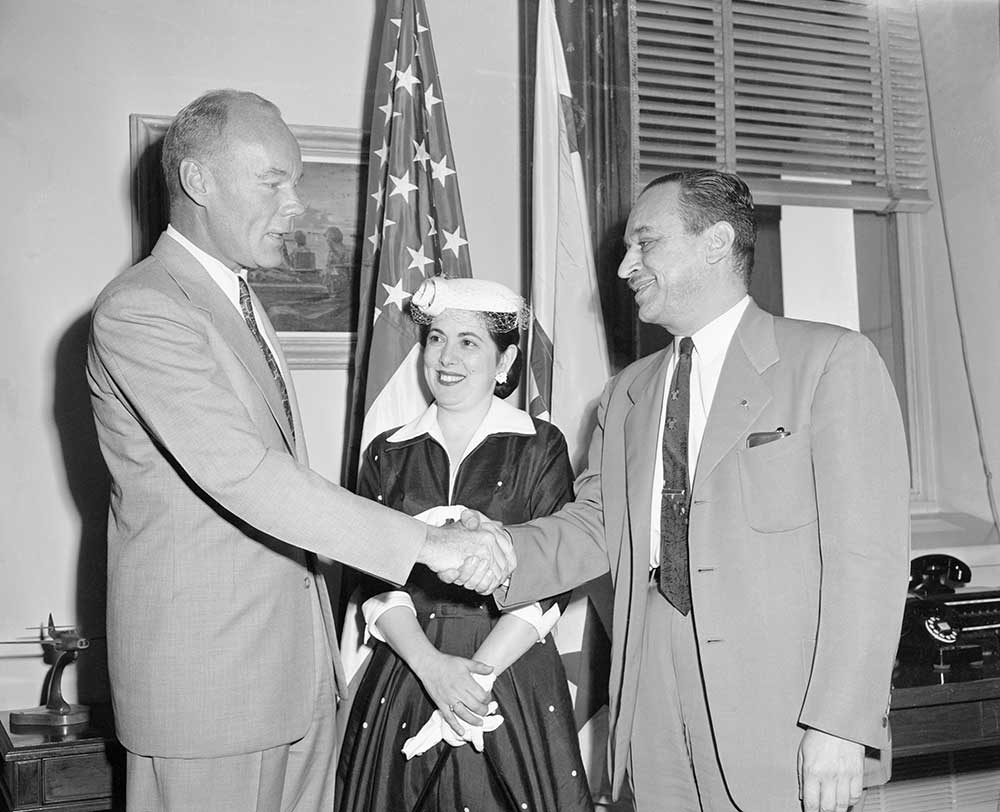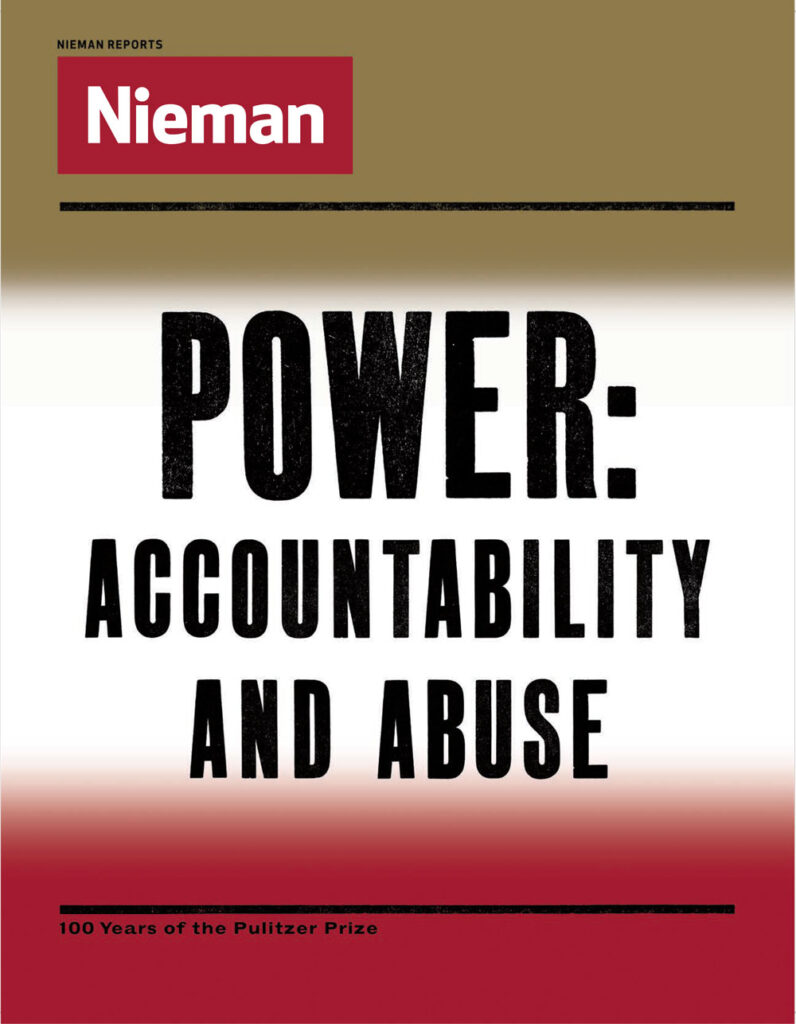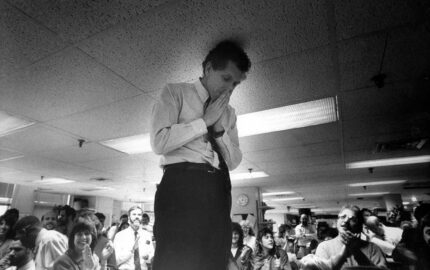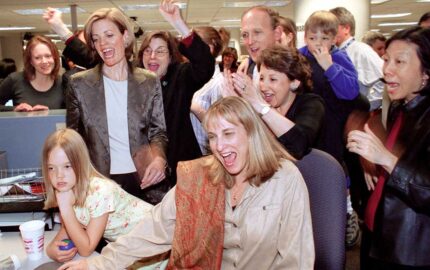Lewis wrote a series of articles about Abraham Chasanow, a civilian employee of the U.S. Navy who—deemed a security risk for allegedly having communist associations—was suspended from his job for 14 months. The articles helped clear Chasanow’s name and got him reinstated to his job. The Navy ultimately acknowledged that it committed a grave injustice and apologized
to Chasanow.
Abraham Chasanow, Navy employee who has been fighting security charges for more than a year while suspended from his job, today won his battle.
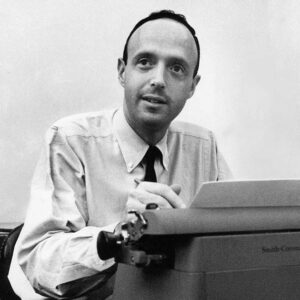
The Navy officially and finally dismissed all its charges against him, ordered him reinstated at his old job at the Hydrographic Office and publicly acknowledged that a “grave injustice” had been done him.
Assistant Secretary of the Navy James H. Smith Jr., at a press conference attended also by Mr. Chasanow, said the case already has resulted in some changes of procedure in the Navy security program and further action is being contemplated.
Mr. Chasanow will receive all pay and allowance for the period he was suspended, less what he managed to earn on the outside.
The press conference was a dramatic and entirely unprecedented occasion. No one could recall another time when Government officials called reporters in to admit a mistake.
“We want to see what we can do to restore him not only his job in the Navy but in his reputation with the public,” Secretary Smith said.
He said the case revealed the following flaws in the security program procedure.
The case took too long to handle—“a great disadvantage to both the Government and the employee.” He said procedures have been considerably speeded up, “but we don’t want to hurry the jury.”
A hearing board fully cleared Mr. Chasanow, but an appeal board overruled that finding without giving Mr. Chasanow or his lawyer a chance to appear before it in person. Mr. Smith said personal appearance is now guaranteed in any case in which an appeal board is planning to make an unfavorable finding.
Anonymous informants, who made derogatory statements about Mr. Chasanow originally, failed to back up their charges when questioned about them.
Mr. Smith put greatest emphasis on this problem of anonymous accusers.
He said he is now “looking into ways and means of preventing delivery of evidence which people are unwilling to stand up and back.”
He said he personally would favor requiring all such derogatory statements to be given under oath.
